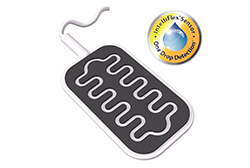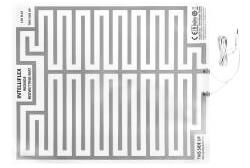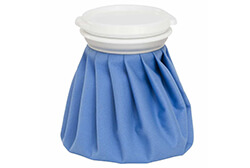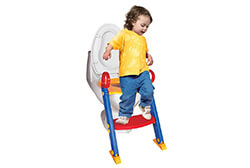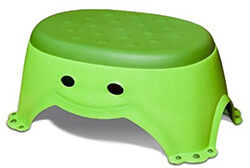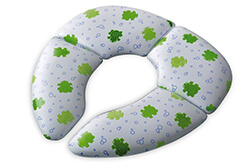
Top 5 Bedwetting Mistakes Parents Make
Last Updated on February 17, 2023 by One Stop Bedwetting
Nighttime bedwetting can be a worrying concern for parents and children. When you find your child has passed urine in their sleep instead of getting up, it can be a cause of concern. After all, children should wake up as soon as they feel full and use the bathroom. Instead, you as a parent have to wake up and help your child change clothes and remove dripping sheets.
Bedwetting is more common than you think. In the US, bedwetting affects 1 in 5 children under 7 years of age. Which means your child is not the only one who is suffering! Parents are upset, stressed and frustrated because bedwetting is an ongoing issue, and everybody needs to get some sleep. There are chances that there is a family history of bedwetting which has resulted in your child wetting at night. As a parent, you probably worry about the effects prolonged bedwetting can have on your child. Common effects include:
- Embarrassment or anxiety which can affect children’s social activities including camping, sleepovers, or overnight activities.
- Disrupted sleep which makes children less active during the day and can affect their studies.
- During night, prolonged contact with urine soaked clothing resulting from bedding can cause rash.
The problem of bedwetting can be made worse when a family does not cope well. You may not exactly know where to start, and it is important to learn what bed wetting mistakes to avoid.
Ignoring the Issue
Some Parents feel that bedwetting is not an problem and it will go away on its own when their child grows up. It is wrong. Bedwetting treatment should not be ignored. Your child needs attention and understanding. Motivate them to get passed their nocturnal enuresis.
Support your Child
Parents assume that children are old enough to figure out how to stop bedwetting. That’s not necessarily true. Helping your child get over bedwetting may take some time. Their success relies on your support. Each morning your child wakes up dry, praise them verbally. Rewarding children with reward systems can achieve positive results.
Punishing Your Child
Bedwetting is an accident, and it is not your child’s fault. Children are embarrassed whenever they have bedwetting and the stress of punishment can add to the pressure. Helping your child get over bedwetting may take some time. Some parents may get exhausted after few weeks and simply give up. Offer support and understanding to help your child cope with the situation. Avoid talking about your child’s bedwetting in front of others. Do not let siblings or others tease your child about their bedwetting.
Bladder Training Basics
Bedwetting takes time to treat. Have Patience. Some simple lifestyle changes can help your child increase their number of dry nights. One popular idea involves not allowing children to have any fluids after a certain time every evening. Encourage your child to drink water early and throughout the day. Have your child decrease the amount of water after dinner and especially before bed. Avoid giving caffeine to your child. Caffeine can stimulate the bladder, so avoid it as much as possible.
Ensure your child empties their bladder just before getting into bed. Teach your child to do double- voids that helps to completely empty the bladder. Going every two hours during the day can help them to avoid that feeling of urgency and teach them good bathroom habits.
Bedwetting Solutions
Find out what can help your child stop nighttime bedwetting along with your support. Bedwetting treatment options are limited, and they help stop bedwetting completely. Use a bedwetting alarm and waterproof mattress pads for your child. When you child is asleep and starts to urinate, a sensor triggers an alarm, which helps wakes the child up. your child gets up and finish urinating in the toilet. Alarm trains your child slowly to get up before it triggers. Parents must be patient since bedwetting alarms may take 3 to 12 weeks to show improvement. Visit the bedwetting resource center for additional articles and selection of the best bedwetting alarms.








 Our #1 Top SellerIdeal for Daily Use
Our #1 Top SellerIdeal for Daily Use Premium Quality BeddingSoft and Comfortable
Premium Quality BeddingSoft and Comfortable Premium Quality BeddingLarge Urine Absorption
Premium Quality BeddingLarge Urine Absorption AFFORDABLE PRICECHANGE DAILY AS NEEDED
AFFORDABLE PRICECHANGE DAILY AS NEEDED
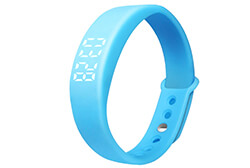 Sleek, Stylish and Affordable Watch
Sleek, Stylish and Affordable Watch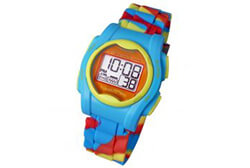 Multi-Function Watch with Numerous Features
Multi-Function Watch with Numerous Features Recommended watch for teens and adults
Recommended watch for teens and adults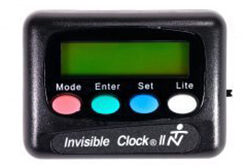 Perfect for medication and other reminders
Perfect for medication and other reminders










